 [By Rabbi Yair Hoffman]
[By Rabbi Yair Hoffman]
In the past few months, U.S. Secretary of State John Kerry has occupied entire floors of hotels in Jerusalem. In early March, Mr Kerry is expected to present a copy of the so-called framework agreement to Benjamin Netanyahu when the Israeli prime minister visits Washington to both visit President Barack Obama and address the AIPAC conference of AIPAC.
The document will propose a peace deal along pre-1967 borders but with land swaps that take account of “demographic changes” on the ground. The document will attempt to influence the Netanyahu government to give up many different areas of Eretz Yisrael. It is therefore be an opportune time to review the halachos of what constitutes Eretz Yisrael. It must be stressed that this discussion does not chalilah condone the giving up of parts of Israel. It is merely a discussion of the status of its various parts.
TWO TYPES OF LAND
Although the verse in Bereishis (17:8) tells us that Hashem told Avraham, “And I shall give you and your descendants after you…the entire Land of Canaan as an inheritance forever,” one can divide up Eretz Yisrael into two different types of land:
A. Lands that were captured by our ancestors who arose out of Egypt but were not recaptured by our ancestors who rose out of Babylonia during the time of Ezra; and
B. Lands that were also recaptured by our ancestors who rose out of Babylonia.
For our purposes, we will heretofore designate these two areas as “area A” and “area B.”
There are many different practical ramifications of the different statuses of these two types of areas. There may be differences in the mitzvah of yishuv Eretz Yisrael, the prohibition of leaving Eretz Yisrael, the issue of terumah and maaser, and also other issues.
This upcoming year (fall of 2014) is a shemittah year, and that is also a matter that may be affected by this question. The issue of keeping one day or two days of Yom Tov is also pertinent. It is also possible that for one of these mitzvos an area is considered Eretz Yisrael but for another it is not.
MITZVAH OF SETTLING
There is halachic debate as to whether one fulfills the mitzvah of yishuv Eretz Yisrael—settling the land of Israel—if one resides in area A. The Chazon Ish (Shvi’is 3:9) rules that one does fulfill the mitzvah. Both the Maharit (Vol. I, No. 47) and the Avnei Naizer (Y.D. 454:62) hold that, although it is a great merit, one does not fulfill the mitzvah of yishuv Eretz Yisrael.
PROHIBITION OF LEAVING
Regarding the prohibition of leaving Eretz Yisrael, there may be a prohibition of leaving area A even if one is moving into area B. Tosefos (as well as the Ran and Ritvah, Gittin 2a) quote the Gemara in Gittin 76b that the Sages (who lived in Eretz Yisrael area A) were careful not to enter the city of Acco. They therefore prove that one may not leave area A to enter into area B. The Ramban, however, understands this incident differently. He writes that these Sages merely loved area A so much that they preferred not to enter an area B, but that, halachically, there is no problem. Another question is whether one may leave area B and go to chutz laAretz. Tosefos in Gittin 2a seems to indicate that it is forbidden.
WHICH AREAS?
There is also a whole plethora of opinions as to which exact areas are part of halachic Eretz Yisrael. Regarding the city of Eilat, for example, there is a debate among the Acharonim as to whether it was among the geographic location recaptured by those who arose from Babylonia. There is a location mentioned in Chumash in the southeast section of the Dead Sea called Maale Akravim. Some have identified this location as Eilat (Rav Yechiel Michel Tikochinsky, zt’l). Others identify it as Jabal Chanzira, which is to the southeast of the Dead Sea and 30 kilometers away from it. Yet others think that what is known today as Maale Akravim is the actual Biblical one, as well. The official position of the chief rabbinate in Israel is that there is doubt.
The differences, of course, will be manifest in the upcoming shemittah year in the supermarkets. Fruit stores under the supervision of the Eidah Chareidis, for example, do not allow any fruits that have kedushas shvi’is into their stores, out of a concern that they might be mishandled by the consumer. All of the produce in stores with an Eidah Chareidis hechsher are either from the sixth year or from what they rule is not considered halachic Eretz Yisrael, or is grown by certified non-Jews on land that they themselves own (without use of a heter mechirah).
Regarding how these issues are ultimately ruled upon, one might have thought that these doubts can be combined to factor into a leniency. In halachic literature this is termed as a “s’nif lehakel.” A s’nif lehakel is usually an opinion or a factor that cannot generally be relied upon by itself to form a lenient ruling but, in combination with one or two or even three other factors, does form a leniency. Regarding the issue of the borders of Eretz Yisrael, however, there are opinions that these doubts cannot be combined and used even as a s’nif lehakel. Rav Efrati quotes the Chazon Ish as forbidding the use of minority opinions as a s’nif lehakel even for a rabbinic issue.
One last idea. The Gemorah in Sotah (44b) tells us that the beginning of defeat is retreat. If Israel retreats from Yehudah and Shomron, then the country of Jordan will become a very attractive place for groups such as Hamas and other Jihad-oriented organizations. If new borders of Eretz Yisroel Israel are near the 1967 line, the dynamic of Israel’s security needs will dramatically change as internal pressures on Jordan will rise significantly.
Even Yitzhak Rabin in his last Knesset speech, made it quite clear that Israel would not withdraw to the 1967 line. In that speech he stressed that Israel would hold on to the Jordan Valley “in the fullest sense of the word.” Yehudah and Shomron are areas that are clearly Eretz Yisroel. But more than this, they are essential to the security needs of the entire nation. It is therefore crucial that we place every effort, both political and spiritual, to ensure the integrity of halachic Eretz Yisroel.
The author can be reached at [email protected]

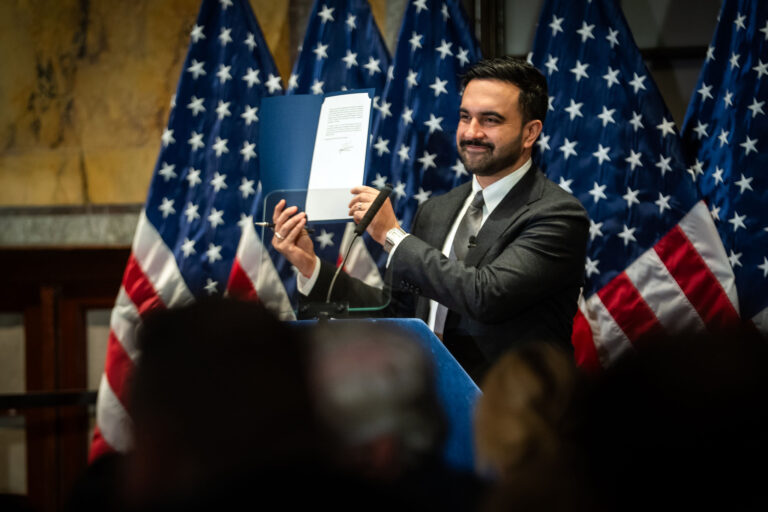
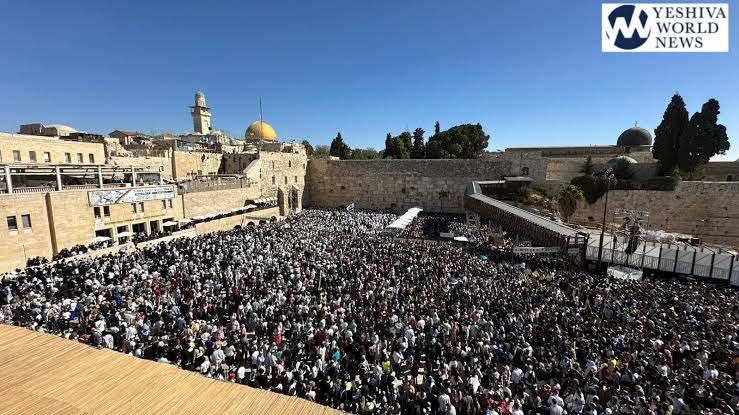


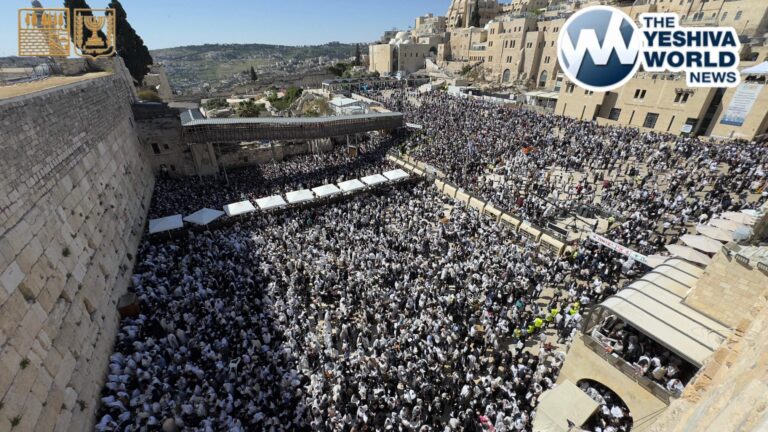
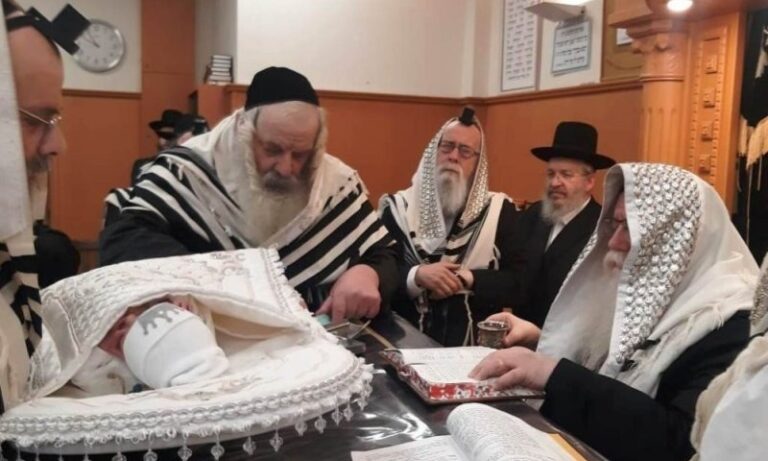



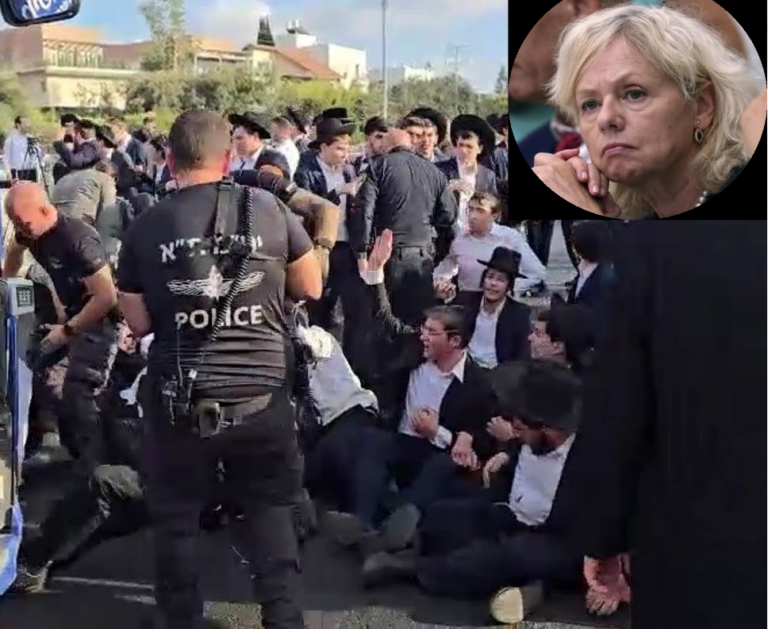
11 Responses
Let’s be clear:
Maran HaGaon HaRav Elazar Menachem Man Shach ZTVK”L was very clear: Peace before land. HaRav Shach zt’l said it is better to give up land if that’ll even save one life. Rav Shach was openly in favor of “land for peace” and said so publicly on numerous occasions. (“Mishpat Cohen” 142-144; c.f. “Michtavim U’Mamarim” 1:14 by Rabbi Elazar M. Schach
And, indeed, almost the entire Torah world, other members of the Moetzes Gedolei HaTorah of the Agudah or Degel and of Shas, such as Chacham Ovadia have been strong proponents of land for peace. Holding unto land in Israel has never been the priority or even necessity.
Rabbi Ovadia Yosef stated: “If areas of Israel are not given back, the danger exists of immediate war on the part of our Arab neighbors; and if the areas are returned to them, the danger of war will be averted; and that there is a chance of permanent peace; then it seems that according to all opinions it is permitted to return areas of Israel in order to achieve this aim, since nothing is more important than the saving of life.”
(See Rav Ovadia Yosef “Ceding Territory of the Land of Israel in Order to Save Lives”, Tehumim Vol. 10, 1989 and Rav Ovadia Yosef “Ceding Territory of the Land of Israel in Order to Save Lives”, Crossroads: Halacha and the Modern World Vol. 3, 1990.)
And, politically, Chacham Ovadia Yosef supported in the Kenesset previous government withdrawal from land to both Egypt and to the Palestinians.
Even Rabbi A.Y. Kook, the first Zionist Chief Rabbi, writes clearly that we should not endanger our lives because of land.
Of course there are many in the Torah world who always believed all along that Jews should never have taken any territory in the first place. That establishing the State was a terrible mistake. This of course was the general consensus of the Torah leadership of the world up through ’48. Since ’48 some have seen the state as a fait accompli.
There is a halachic opinion that holds that going to war with the goyim to seize Eretz Yisrael is prohibitted, and that would be for establishing a Jewish state (as opposed to a secular state in which halacha is not the law of the land, whose leaders are primarily apikoresism, and public policy reflects those leaders).
If in fact the establishment by force of the State of Israel was kosher, then it would be a mitzvah to participate in the military, and in fact most gedolim make a point of not serving in the military and telling their talmidim not to serve either, suggesting that most of the gedolim in Eretz Yisrael agree with the Satmars Rebbe (R. Yoel, the original one), and that while their public statements are coerced by the need of not getting arrested by the zionists, their actions in not joining the army reflect what they really hold.
The only solution is for Israel to negotiate being an autonomous (and well armed) ethnic minority within an Arab Islamic state (as was the “deal” worked out during and immediately after World War I, that was sabotaged by the British and French imperialists who feared a large Arab country with a large Jewish minority would be too powerful.
Let’s continue to be clear:
The Zionists are not the generic Jewish “nation”.
The Zionists, rather, are interlopers who, for decades before 1948 through today, have continued to seek, at all costs, nothing less than the replacement of Judaism with, lihavdil, Zionism as they occupy Eretz Yisrael with the Zionists’ idolatry and perversions.
(Regardless, Acheinu Binei Yisrael who are living in Israel are, of course, also part of the global Jewish nation.)
Rabbi Hoffman’s whole Area A versus B pilpul is enlightening as usual for his well-written discourses, but all this has little relevance to Israeli politics.
Rabbi Hoffman’s use of the word “chalilah” is very puzzling given its context of mere political land agreements.
The sentence “It must be stressed that this discussion does not chalilah condone the giving up of parts of Israel” seems like simply “writing what they want to hear” for the MO/”Religious Zionist” readers of the 5TJT, as Zalman’s words above amply demonstrate.
#1- “Even Rabbi A.Y. Kook, the first Zionist Chief Rabbi, writes clearly that we should not endanger our lives because of land” – where did he write that? I’d like to look it up.
To Zalman: Whether you distort the truth to support your position or you are just an ignoramous – I do not know. But while it is true that Rav Ovadia initially supported oslo, he openly and clearly retracted his psak during the second intifada when he saw that “land for peace” was not that at all rather it was a naive concept that in reality led to loss of Jewish lives. He wrote then “It is my intention to make clear my position concerning Judea and Samaria. I have explained more than once since my Halachic ruling, that giving up land for peace has no validity in light of the current situation. I intended there be a true peace, in which Jerusalem and its surroundings will be secure in peace and quiet. But now, our eyes see that surrendering our holy land causes a danger to life. This is not the peace for which we prayed. Therefore, the Oslo Accords are null and void.”
to be continued…
And to you a. kuperman:
in another of your ridiculous twists of logic, you deduce from the fact that most Gedolim don’t serve or encourage serving in the IDF that this is because they hold like Satmar. Otherwise,you claim, they would all serve because it would be a mitzvah. How ridiculous you one get! The Charedi world has separated itself from israeli secular society and the idf – which is a major force in israeli secular society – for one reason and one reason only – preservation of Torah ideals and a Torah lifestyle. Then you come up with a nonsensical “solution” of Israel becoming an “autonomous (and well armed) ethnic minority within an Arab Islamic state”. If Jewish lives weren’t at stake, I might even laugh. You, and the others who think like you, such as Zalman and Hakatan, are a real danger to the Jews living in Israel. Israel is surrounded on all sides by Arab enemies who don’t just want to destroy the “zionist entity” but her population of millions of Jews too, G-d forbid. Your being such rabid anti-Zionists clouds your thinking to the point where you sound like the anti-Semites who want to destroy us and your positions present a real danger to millions of Jews living in Israel.
Yagel #4: See R. Abraham Isaac Kuk, Responsa Mishpat Kohen , no. 63.
ThinkingCap: Zalman is 100% correct. Rav Ovadia Yosef was unambiguous that land is given away if that saves lives. The only question is whether it will save lives. If it does Rav Ovadia Yosef 100% supported giving away land. Take a look into the sources Zalman kindly providing documenting this fact.
“And, indeed, almost the entire Torah world, other members of the Moetzes Gedolei HaTorah of the Agudah or Degel and of Shas, such as Chacham Ovadia have been strong proponents of land for peace.”
Rav Soloveitchik z’tz’l was at one point a member of the Moetzes Gedolei HaTorah of Agudath Israel of America before he realized the importance of a Jewish State in the Land of Israel and became the head of Mizrachi. He was a huge supporter of Land for Peace. His son in law Rabbi Dr. Aharon Lichtenstein z’tz’l holds the same way — and he lives in a settlement over the Green Line. Rav Soloveitchik’s daughter Dr. Tovah Lichtenstein once ran for the Knesset on the religious Zionist Meimad party as a supporter of the Oslo Accords. And I have personally heard Rav Soloveitchik’s talmid Rabbi Shlomo Riskin say that he would abandon the city of Efrat if it would bring peace.
“It is therefore crucial that we place every effort, both political and spiritual, to ensure the integrity of halachic Eretz Yisroel.”
There are indeed great rabbis such as Rabbi Dr. Moshe D. Tendler who insist that it is asur to give up any part of the Land of Israel for any reason. If this *is* the halachah (and I am certainly not able to argue with any of the great rabbis on either side of this issue) we need to annex the occupied territories and grand Israeli citizenship to the non-Jews living there. Were Israel’s government to enact such a law I would support it.
The Torah “Greats” of today are certainly no better than their counterparts in the generation when we left Mitzrayim. Unfortunately for them and for us, they continue to make the same mistakes. This is one of the reasons the ten spies who erred gave for not entering to conquer Eretz Yisrael, was it not? “Pikuach Nefesh?” Remember the price we all had to pay for that mistake in judgment on their part. There are no popes in Judaism, no one is infallible – even Moshe Rabeinu erred as did Shlomo Hamelech- the wisest man who ever lived. Even Adam Harishon who did not even have the yetzer hara inside him! He erred. We have to be like Yehoshua and Calev and be determined to follow Hashem regardless of any perceived “risk.”
Aside from the many Gedolim who advocated giving away land for peace, many Zionist leaders of Israel advocated it — and DID IT!
Prime Minister Menachem Begin, Prime Minister Yitzchak Rabin, and Prime Minister Ariel Sharon all gave away land for peace! (Two of them Likudniks, by the way.)
Prime Minister Shimin Peres, Prime Minister Ehud Barak, Prime Minister Ehud Olmert and right now even Prime Minister Benjamin Netanyahu all supported giving away land for peace!